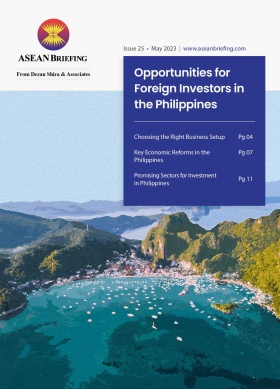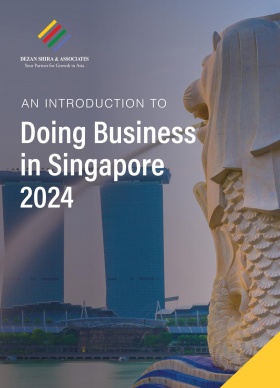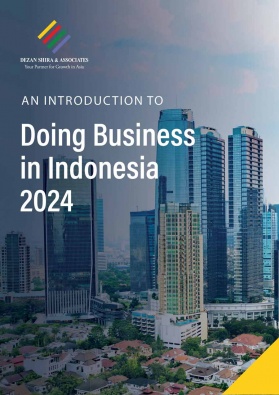Electric Vehicle Imports in the Philippines Benefit from Expanded Zero-Tariff Rates
On May 15, 2024, the National Economic and Development Board (NEDA) of the Philippines approved an extension of the most-favored-nation (MFN) zero-tariff rate on more battery electric vehicles (EVs) and components. In addition, it upheld the decision to impose a temporary MFN zero-tariff import rate on 34 battery EV products until 2028. These temporary rates were first introduced through Executive Order (EO) No. 12 (s. 2023) (hereinafter EO 12) and were subject to a one-year review following their implementation in February 2023.
However, EO 12 did not impose zero-tariff MFN rates on two- and three-wheeled, hybrid, and plug-in.
The new items subject to 0 percent import tariffs are electric motorcycles, electric bicycles, nickel metal hydride accumulators, battery e-tricycles and quadricycles, battery, hybrid, and plug-in hybrid electric jeepneys and buses, hybrid and plug-in hybrid electric cars and trucks, and completely knocked down EVs for all types of vehicles. The zero-tariff rate will be applied until 2028.
Below is a summary of the products subject to zero-tariff import rates under EO 12.
|
Sample of EVs and Components Subject to Zero-Tariff MFN Rate |
||
|
Item |
Rate until 2028 |
Rate after 2028 |
|
Motor vehicles for transport of 10 or passengers with only electric motor |
0% |
20% |
|
Electric motor cars and vehicles principally designed for transport of persons, including ambulances, prison vans, hearses, motor homes, sedans, sports cars, and station wagons. |
0% |
30% |
|
Electric motor vehicles for transport of goods, including pick-up trucks and three-wheeled vehicles |
0% |
3 – 30% |
|
Electric motorcycles (including mopeds) and cycles fitted with an auxiliary motor |
0% |
30% |
The Philippines’ EV market development and climate commitments
The temporary zero-tariff rates on EV imports form part of the Philippines’ efforts to reduce carbon emissions from the transport sector and develop the domestic EV market. According to EO 12, the transport sector is one of the largest sources of air pollution in the Philippines and accounts for 34 percent of the country’s energy-related greenhouse gas emissions. Road transport reportedly accounts for 80 percent of these emissions.
In adherence to the UN Development Program (UNDP) Climate Promise, the Philippines has committed to a reduction and avoidance of 75 percent of greenhouse gas emissions (GHG) between 2020 and 2030 in the agriculture, waste, industry, transport, and energy sectors. This commitment adds significant urgency to the development of green alternatives to transport.In April 2022, the Philippines passed the Electric Vehicle Industry Development Act (EVIDA), which aims to enhance the country’s energy security and independence by reducing reliance on imported fuel for transportation. It also seeks to create an environment conducive to the development of EVs and micromobility options to decrease dependence on fossil fuels.
The EVIDA proposes a range of measures to boost the industry’s development. These include fiscal incentives for the manufacturing, import, and utilization of EVs, as well as non-fiscal incentives, such as streamlined customs processing and registration, for EV users, manufacturers, and importers.
A set of implementing rules and regulations for the EVIDA stipulated a range of fiscal incentives for the import of EV components, including an eight-year exemption of import duties for completely built EV charging stations (until 2030).
In addition, the implementation rules stipulated that an evaluation process should be carried out to include the import of capital equipment and components used in the manufacture or assembly of EVs and construction or installation of EV charging stations in the 2022 Strategic Investment Priority Plan (SIPP). The SIPP lists projects and activities selected for long-term growth and eligible for various incentive policies.
In the announcement confirming the extension of the tariffs, Vice Chairperson of the NEDA Board stated that “Executive Order No. 12 is designed to stimulate the electric vehicle (EV) market in the country, support the transition to emerging technologies, reduce our transport system’s reliance on fossil fuels, and reduce greenhouse gas emissions attributed to road transport.”
About Us
ASEAN Briefing is produced by Dezan Shira & Associates. The firm assists foreign investors throughout Asia and maintains offices throughout ASEAN, including in Singapore, Hanoi, Ho Chi Minh City, and Da Nang in Vietnam, in addition to Jakarta, in Indonesia. We also have partner firms in Malaysia, the Philippines, and Thailand as well as our practices in China and India. Please contact us at asean@dezshira.com or visit our website at www.dezshira.com.
- Previous Article Indonesia Strengthens Pharma Sector with Novo Nordisk Partnership
- Next Article Singapore’s Growing Investments in Vietnam: Key Sectors







